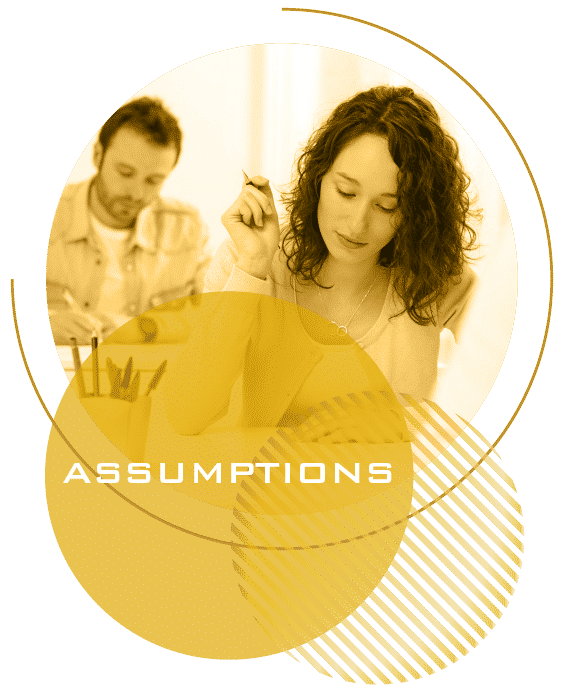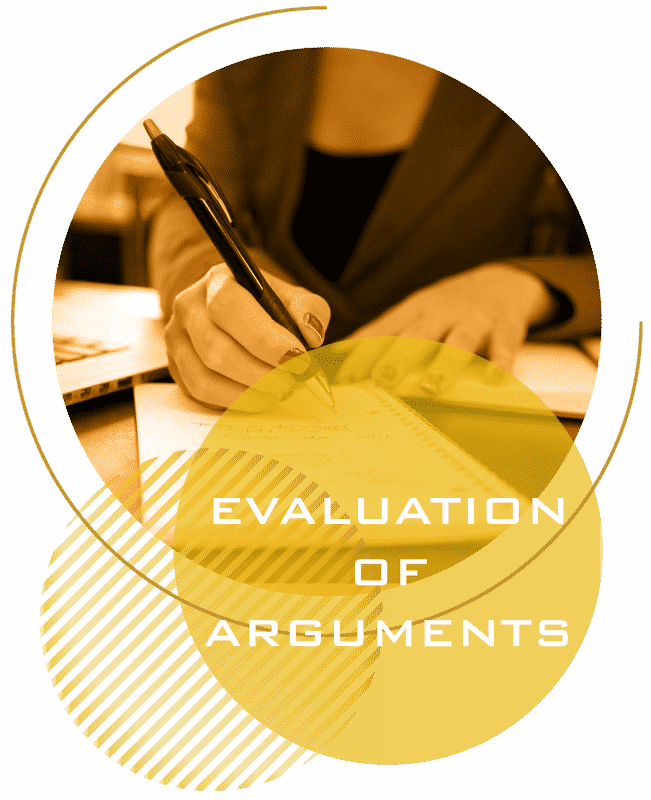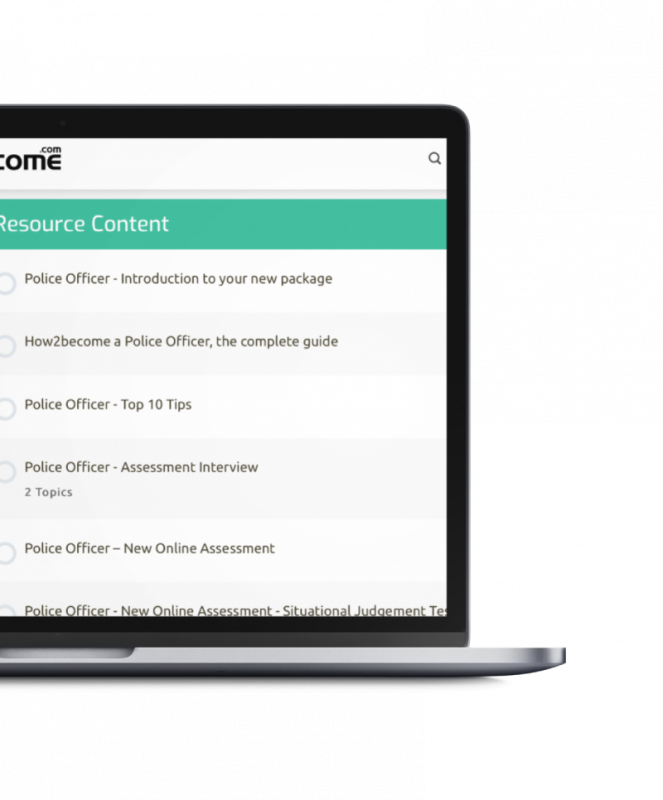
ONLINE WATSON GLASER TESTS
What is the Watson Glaser test? How can you pass with high scores? Read on for a complete breakdown and 100s of practice questions.
4.9/5 Rating | 1,000+ Reviews ![]()
Training That Works
Discover insider secrets and a masterclass of testing practice material that has helped 100s of candidates pass their assessment tests.
Unlock Your Potential
Whether you’re just starting out or you know what to expect, you will get access to questions, with solutions that will catapult your chances of success.
Powerful Resources
Get instant access to the material right now which includes inferences, assumptions, deductions, interpretations, and the evaluation of arguments.
WHAT IS THE WATSON GLASER TEST?

The test is a 30-minute long assessment, and contains around 40 questions. If you’re expected to pass a critical thinking test, remember that it might not specifically be the Watson Glaser appraisal. Therefore, the time limit and number of questions in your test might differ.
Finally, there’s no set material that you need to learn for the test. By this, we mean that you won’t need to revise a case study or enter with prior knowledge of the role you’re applying for any wider knowledge about the working world. The critical thinking test isn’t concerned with that – it cares about your ability to work with what you’re given in order to come to logical conclusions. Therefore, you’ll be given all the information you need to have some understanding of every question. What you need to study is critical thinking itself.
WHAT IS CRITICAL THINKING?
Have you ever been in a debate with someone about something, and they’ve said something that sounds dubious? Perhaps they made a claim and failed to provide evidence to support it, or they shot down your argument for reasons that didn’t seem relevant. If you picked up on either of these, then you might have an eye (or ear!) for critical thinking.
In short, critical thinking is the activity of studying arguments, the ideas that they’re made up of, and the logic that binds them together. When partaking in critical thinking, you’re concerned with the structure of arguments, and whether they follow the conventions of argument. If an argument follows these rules, then it’s usually considered to be a strong argument. However, if an argument sounds suspicious, imprecise, or poorly supported, then you’ll need to figure out why and identify it. This is the role of the critical thinker both during debates and everyday life.
Critical thinkers need to be on the lookout for the following errors made in argument:
- Formal logical fallacies (i.e. poorly constructed arguments);
- Informal logical fallacies (e.g. appeals to emotion, appeals to authority);
- Leaps in logic which don’t follow from one to another.
Critical thinking is a valuable skill in any walk of life, and is highly valued by employers. This is because critical thinking skills demonstrates that individuals are committed to looking at situations logically, carefully interpreting evidence, and following arguments to the most well-informed conclusion. This is useful in numerous careers and positions. Essentially, any job that is evidence-based will make good use of critical thinking skills. Therefore, it’s in your employer’s best interests to ensure that candidates are capable of thinking critically.
CRITICAL THINKING QUESTION TYPES

INFERENCES
When someone infers something, or makes an inference, then they are coming to a conclusion which is based on evidence. Logic (whether inductive or deductive) is applied to this evidence, which in turn brings the individual to their conclusion.
ASSUMPTIONS
An assumption is a claim that is accepted as the truth without sufficient evidence. These are an issue for critical thinkers because, as a rule, claims made without factual evidence are unhelpful and can be misleading.


DEDUCTIONS
A deduction is a conclusion which is reached logically by examining premises. In fact, a deduction only uses its premises in order to reach a conclusion.
INTERPRETATIONS
An interpretation is a conclusion made from carefully evaluating data, and figuring out what information logically follows from it. We make interpretations every day when going about our lives.


EVALUATION OF ARGUMENTS
Along with the aforementioned skills that a critical thinker needs to possess, it’s important to be able to evaluate arguments in a more general sense. Critical thinkers need to be able to figure out how strong an argument is by comparing it to the information it’s based on.

PASS YOUR CRITICAL THINKING TEST

- Instant Online Access
- 100s of Practice Questions and Answers
- Practice all of the test questions under timed conditions using our online testing suite
- Compatible on Mobiles, Tablets and Computers
- Scores are tracked so you can focus on areas that need improvement
- Get Instant Access now for only £9.99+ VAT
Please note: the online testing suite service is automatically charged at just £9.99 plus vat per month with no minimum term. You can cancel anytime by contacting us at info@how2become.com. See our terms and conditions for more details.
Start Preparing Now 👉Sample Critical Thinking Test Questions
To help you get a better understanding of what a critical thinking test involves, let’s take a quick look at a few sample assumption questions.
FREE | 5 Questions
Critical Thinking Test Practice Questions
For each of the following questions, decide whether if the arguments are strong (‘Strong Argument’) or weak (‘Weak Argument’).
Should businesses in London ensure that wages match the living wage for staff living in the city?
Argument 1: No – staff can live outside of London and commute into the city to work.
Argument 2: Yes – the alternative would be to force staff to commute, which can lead to increased stress and therefore reduced productivity.
Argument 3: No – if businesses have to pay more for their staff to live where they want, they could end up having to pay for other luxuries such as private health care.
Do schools have an obligation to make sure that students study at least one of the sciences at A-Level?
Argument 1: Yes – there’s a demand for people experienced in the core sciences in the workplace, so making students take at least one science subject will increase their job prospects. Since schools should prepare students for the real world, they have an obligation to get them on the right track for a good career.
Argument 2: No – it isn’t the school’s responsibility to decide exactly which subjects students choose. Pupils are free to choose the subjects that they want to take, but should be made aware of the possible benefits of studying one of the sciences at A-Level.
Argument 3: No – none of the A-Level students that I’ve met have wanted to do science.
The amount of organised crime in major cities has been increasing year on year. The number of armed police officers has also increased year on year. The government is now debating spending money on a new specialised taskforce for organised crime. A number of ex-chiefs of police have commented positively on this. Is this the correct decision?
Argument 1: No – we can see from the statistics that the increase in number of armed police officers is rising at the same time as the amount of organised crime. A new taskforce would just add to the problem rather than solve it.
Argument 2: Yes – ex-chiefs of police think that it’s a good idea to do it.
Argument 3: Yes – a specialised taskforce could be completely devoted to the problem of organised crime. In the long-term, this might mean that the government could potentially spend less money on armed police, which has the added benefit of having less police officers with firearms in cities.
Out of all the major businesses in London, 90% of them disclose their diversity statistics in an annual report. The rest of the firms are being pressured by investors who believe that a greater focus on diversity would increase annual profit. Should these remaining companies disclose their diversity data?
Argument 1: Yes – everyone else is doing it, so they should too.
Argument 2: Yes – the investors think it’s a good idea, and if the companies refuse to comply with their suggestions, the investors might pull funds from them.
Argument 3: No – increasing diversity isn’t something that companies should have to do since it’s not normal for there to be total equality in terms of ethnicity and gender.
Should nurses trained in the UK, and funded by the NHS, be required to work for a certain period of time within the UK public sector before being allowed to work in the private sector or overseas?
Argument 1: Yes – the NHS funds many of these nurses through training, so they should have to give back for a fixed period of time. This further experience would benefit them as well.
Argument 2: No – this denies them of their freedom where to work. They might as well be in a work camp.
Argument 3: Yes – I find it ridiculous that taxpayers’ money is spent on training these nurses, only for them to go overseas.

Pass Your Critical Thinking Test. First Time.
Crafted for everyone, no matter your skill level or background, this download was made to help you achieve one goal: pass your critical thinking test.
WHAT WILL YOU LEARN?
Scoring Criteria
Essential information about how you will be assessed during a watson glaser assessment.
UP-TO-DATE FOR 2025
All exercises have been verified by our assessment panel experts for the 2025 tests.
PRACTICE SAMPLE TEST QUESTIONS
Step-by-step information on how to pass the watson glaser test.
FULLY-WORKED SOLUTIONS
Solutions for all questions so you can be confident in learning and improving your score.
INSIDER SECRETS
Insider tips on how to answer the questions and a breakdown on how you will be scored.
SCORE-BOOSTING STRATEGIES
Get ahead of the competition with unique and proven strategies 16 years in the making.
Customer Success Stories
Having helped 1,000s of people pass their assessment tests for over 16 years, it is no wonder our customers love us…

This is my go to for information to set out my legal arguments and has taught me the value of a good evidence based argument.

It really helped me learn how to find mistakes in an argument and how to invalidate arguments made by the opposition.

Handy for your preparation.

The tips are very practical and have helped me score well in recent tests.

This is a must for those who will be under scrutiny in interviews or exams for university places. I never had the opportunity to do “Critical Thinking” at school but now appreciate the importance and relevance of the subject.

WHAT’S INCLUDED IN YOUR TESTING SUITE?
Complete guidance to ensure you pass the Watson Glaser tests for ANY organization!
- Assumptions tests, practice questions & insider guidance.
- Critical thinking tests, practice questions & insider guidance.
- Deductions tests, practice questions & insider guidance.
- Evaluations tests, practice questions & insider guidance.
- Inferences tests, practice questions & insider guidance.
- Interpretation tests, practice questions & insider guidance.
per month

Did you know? All orders with How2Become are protected by our 30-day money-back guarantee. What ever the reason…or no reason at all…you can have your money back if this resource isn’t right for you (see our terms for full details).
WHY BUY WITH HOW2BECOME?
CREATED BY THE EXPERTS
PROVEN TRAINING
EXCLUSIVE FREE BONUSES
Firstly, these guides are created by us and our team of experts – we have all the answers to your questions and will help you succeed (like we’ve been doing for the last 16 years), we update our material frequently and you can contact us at any time with any questions you have.
Secondly, we provide exclusive bonuses with all our products that you won’t find anywhere else. These bonuses include free guides, powerful online testing suites and more!
Finally, our guides and training just work. Take a look at our TrustPilot page where you will see our rating of 4.9/5. There, our customers share their positive buying experiences and more importantly the time-saving success our resources have given them (hint: they passed their assessment).

Learn how to PASS YOUR ASSESSMENT
We’ve helped 1,000s of aspiring applicants in their journey to succeed in a new career. Trust the UK’s #1 careers and education specialists to help you secure your role.
Get instant access »“Great variety of question types, exposes areas of weakness and gives you the means to improve. Clear and concise. Confidence builder. Great practice!”












